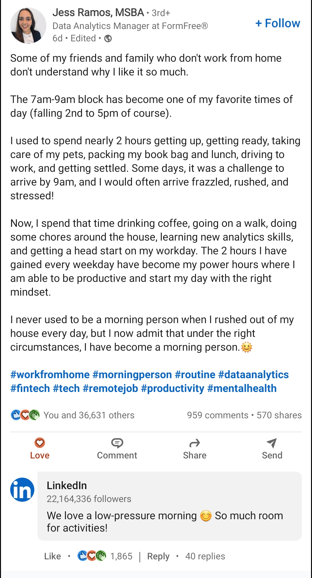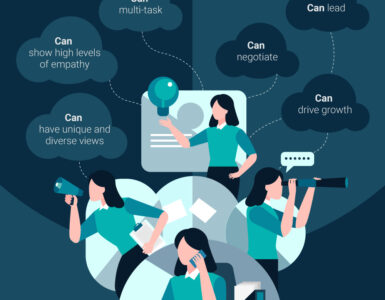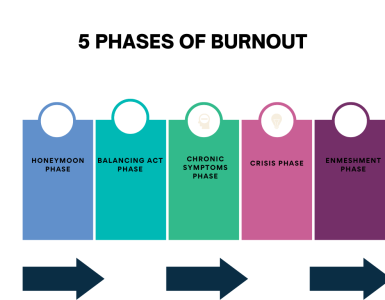You might be familiar with the concept of the Metaverse, but how does it work? Making sense of the Metaverse is similar to trying to understand the internet back in the ’70s. We take a look at the logistics space with a shortage of labour. In order to grow and digitise, the supply chain sector needs people to join it.
Companies are developing new strategies to keep up with the new industry challenges. No longer are they confined to textbook business best practices. With climate change challenges in Canada, South Africa, and China’s recent COVID-19 lockdowns we notice that in order to retain good talent, organizations can provide new positions, new job duties, and digital strategies, while also offering more flexibility and increasing mental health in the workplace.
Mental Health in the Logistics Space
With a rise in workplace-related stress, illnesses and mental health issues, 52% of working adults in the travel, transport and logistics industry believe that businesses are not doing enough to support the physical and mental wellbeing of their employees, according to a new study by Westfield Health.
Those working in logistics face an incredible amount of pressure. They are under pressure to meet deadlines, build client relationships, update customers, submit to port and tax authorities on time, and not forget the amount of work that needs to be done with the least amount of time and errors.
Logistic companies such as Deutsche Post DHL Group have taken a holistic approach to mental health and how they can incorporate it into their workplace.
“Mental health in the workplace is an important issue that we are committed to addressing. We certainly have a bottom-line interest in this since mental disorders are a significant contributor to absenteeism and directly impact productivity. But our strong sense of corporate and social responsibility is another motivating factor, especially since the workplace itself can all too often play a role in contributing to mental disorders. One of our core goals at Deutsche Post DHL Group is to become Employer of Choice, and in order to achieve this, we foster a corporate culture in which mental illness is not stigmatized but addressed openly and constructively. Ultimately everyone benefits employees, managers, stakeholders, and society as a whole”. – Thomas Ogilvie, Chief Human Resources Officer, Deutsche Post DHL
Can the Metaverse allow flexibility to your organisation and workers
Businesses can learn how to navigate disruptions from the tech industry, where businesses must constantly reinvent themselves to keep up with and surpass their competition. And the network that most tech companies look to utilize for the future is the metaverse.
Metaverses have the potential to boost diversity and inclusion in the workplace by enabling everyone to interact on the same level playing field, regardless of their location. As a result of seamless social interactions enabled by the metaverse, creativity and collaboration can also benefit.
With the prospect of a metaverse office and Zoom fatigue rising, technology that supports more immersive work environments is more critical than ever.
By providing infinite space and flexibility, the metaverse can also encourage more collaboration. In the metaverse, workers never have to worry about limited seating, whiteboard space, dry erase markers, notepads, pens and pencils or other things that might be lacking in a physical environment.
3 Things to consider about the Metaverse
Be Adaptive Or Become Obsolete
Innovation helps forward-thinking companies replace organizations that fail to adapt to technological advances, according to a theory known as creative destruction. Think of all the companies that went out of business due to lack of adaptability in the digital age. Add the disruption of a global pandemic, and you have a world in which only those who adapt their practices will survive.
The Metaverse Encourages Collaboration
Whether you are in a foreign country or a global pandemic, distance hurts collaboration. Video calls don’t provide the right social structure to cooperate effectively. Conversely, the metaverse is an effective way of bringing people together in a shared space to spark creativity. It is the only system that can replicate an in-person brainstorming session.
The Metaverse As A Training and Customer Support Tool
Using the metaverse for business goes well beyond meetings. Businesses can train employees remotely, providing “hands-on” learning in an environment that teaches people how to perform their job—and allowing them to see if it’s a fit for them. MGM Resorts is already using the metaverse in this manner. In partnership with Strivr, MGM Resorts gives potential employees the chance to test out their jobs in virtual reality before accepting them. The company saves money and time by not having to train and then replace someone who leaves after a short period of time if they don’t like the job.
The metaverse allows organizations to demonstrate to clients and partners that they understand what it takes to succeed in global markets.
Benefits of flexibility in the workplace
Your business will be more aligned with what people are seeking for their careers if you embrace an entrepreneurial mindset. By doing so, you’ll exit the Great Reshuffle better than when you entered it. You’ll discover how to promote autonomy and flexibility, while still achieving key business outcomes.

As a result of working from home, FormFree’s Data Analytics Manager, Jess Ramos, took advantage of her commute time to develop a healthier lifestyle and upskill herself.
Think about a team of fifty employees who spend one hour learning something new every day. That is 12 000 hours of new skills learned in your organization each year to upskill themselves for their position, and this is only going to benefit your business.
Musk points out that some of the greatest names, such as Bill Gates, Larry Ellison, and Steve Jobs, did not finish college. He uses this to emphasize that degrees don’t determine greatness, rather your passion counts.
The dismissal of academic accolades by Elon Musk in 2018 did not imply that education is not important. To him, the only thing he wants to emphasize to young people is that if they put all their energy into grades and diplomas, they miss out on everything important. Throughout your career, you need to be able to continue improving and updating your skills.
According to Prodoscore, an employee visibility and productivity intelligence software provider, nearly one in five (18.1 per cent) go so far as reporting they don’t have stress while working from home, finds the survey of more than 1,000 adults working full time conducted in the fall of 2021.
Also, 43.8 per cent of respondents say their physical health has improved, with 39.5 per cent reporting they now have time to work out.
Business Tech report on South Africa’s biggest internet provider WebAfrica moving to a full work from home business model.
“On average, by working from home we save our employees approximately 2.5 hours a day in traffic and with rising petrol costs, remote working drastically reduces the burden of these increases on our staff’s pockets.If remote working can give our staff that extra time to spend with their children or make family responsibilities easier on them, I’d say it’s definitely worth it. Employee productivity has gone up by 20% since moving fully remote and employee happiness, which is measured on a quarterly basis, is at an all-time high.” Sean Nourse, Chief Executive of Webafrica.
Changing your business model to a Hybrid or Full work from home can be applied throughout all industries if risk management and contingency plans are put in place from planning phase.
How can the Metaverse help people with Mental Health Illnesses
One in four people worldwide will suffer from a mental disorder at least once in their life. Does this make them invaluable or incapable of getting the job done or pushing through life?
Web 3.0 is a platform for connecting to places and people. The Metaverse is built atop this platform. This is pretty much the Internet, but it is using technological devices to enter the metaverse. Web 3.0 technologies like artificial intelligence, augmented reality, virtual reality, and the Internet of Medical Things are already being used to do things like train front-line pandemic workers and relieve symptoms of post-traumatic stress (PTS).
If you could walk into work, put on your VR headset, and in that spot listen to the ocean or listen to a soothing song, and then watch it live, it would be wonderful. Would that make you happy? How would that set you up for the day? Wouldn’t it be great if you could keep your creative juices flowing while still working in your own safe space without feeling at home or at work?
When the Metaverse is used for a purpose that will drive high value in your business and employees then it will definitely assist mental health issues.
Bernard Marr talks about how the Metaverse will transform health care. Health care professionals from all over the globe can connect and share ideas and case studies. He further talks about how The Metaverse can allow people to seek professional help without feeling the need to expose who they are and has the potential to improve all aspects of healthcare, from virtual wellness to mental health to complicated surgical procedures.
Metaverse Mental Health Treatments
The metaverse has the potential to revolutionize mental health treatment. Psychiatrists and psychotherapists could use the immersive experiences in the metaverse to treat issues like:
- PTS
- Anxiety disorders
- Delusions
- Psychosis
- Hallucinations
- Eating disorders
Additionally, the metaverse could provide access to mental health care for disabled people or people who deal with geographic barriers to getting care.
How can SFL Help you
As a Platinum CargoWise Certified Partner with Wisetech Global, Soft Freight Logic has a direct desire to serve the Freight Forwarding and Logistics Industry. We are primarily focused on ensuring good mental health within our organization and with our clients.
Innovation helps forward-thinking companies replace organizations that fail to adapt to technological advances, according to a theory known as creative destruction. Think of all the companies that went out of business due to lack of adaptability in the digital age. Add the disruption of a global pandemic, and you have a world in which only those who adapt their practices will survive.
Contact us today at connectwithus@softfreightlogic.com or alternatively book a 30mins free consultation on how we can prepare you and your business to enter the Metaverse as a Digital Forwarder.






